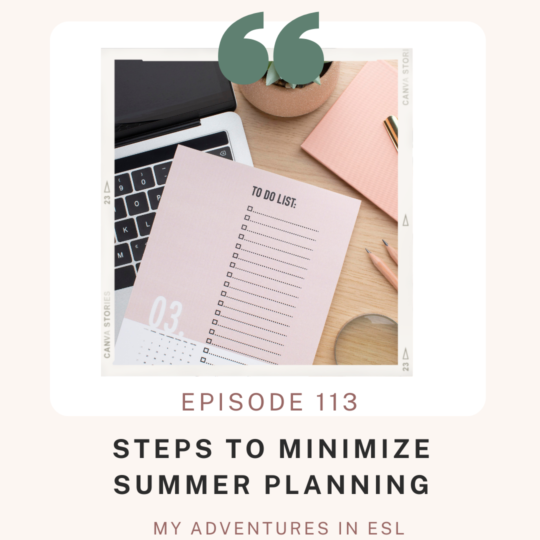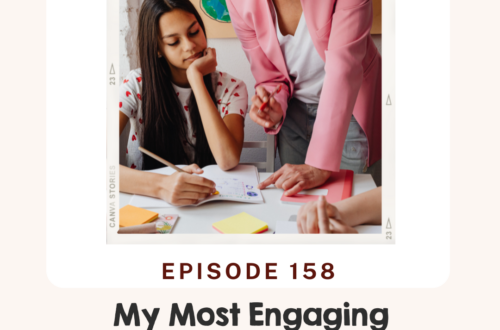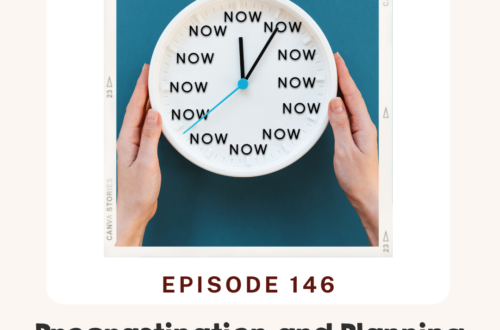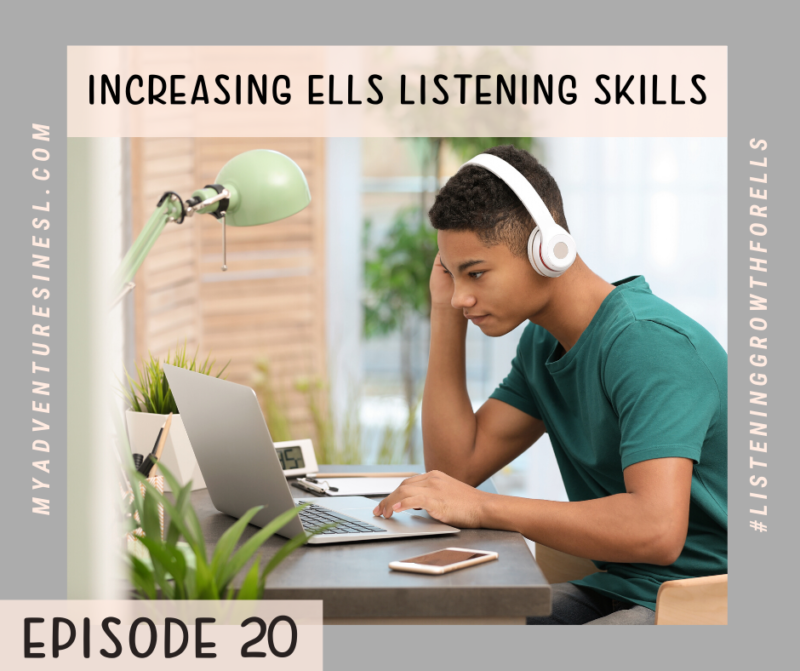
EP 113 Steps to Minimal Lesson Planning this Summer
Hey everyone! I have great news to share with you this week. One of the biggest requests I get is how to plan lessons for Language Learners. That is why I want to invite you to join me in the Prep & Plan Sessions. During these sessions, I will walk you through how to set the foundation for successful planning throughout the school year. Go to myadventuresinesl.com/prepandplan to get notified when we start our sessions.
We are going to start off today’s episode with your reflection question.
What did you do last summer that was effective in planning for your school year?
Take a moment to reflect on this question. Think about this question and answer yourself honestly about where you stand
The problem many of us face is simple. We don’t want to plan over the summer. The problem with that is that if we don’t do some form of planning (even if it’s a tiny bit) then we are at a huge disadvantage when the school year starts.
There was a time where I dedicated my whole summer to planning. There were also times when I decided not to plan at all during the summer. The problem with dedicating my whole summer to planning is I didn’t have time to regroup, reflect, and enjoy my summer. On the opposite end of the spectrum, I spent my whole summer not being productive. This caused my school year to start off hectic and chaotic.
It did not take me long to realize that I needed a balance. I did not have to be at the extreme, but I could strike a realistic balance. I started to notice that once I properly planned my summer days, I could balance planning and having time to relax. I started in the month of July, scheduling one hour a day planning my lessons. About a week before the school year approached, I increased that time to 2-3 hours a day.
Taking small steps lead me to staying consistent and building up momentum for the upcoming school year. Here are some minimal and basic steps you can take to help you plan for the upcoming school year.
Step 1: Decide on when you are going to start planning for the school year. Once you decide, write it on your calendar. You can even take the time to schedule the specific days you want to commit to for planning the upcoming school year. In my case, I just committed to Monday – Friday for 1 hour a week.
Step 2: Make a decision on how long you will plan for during this time. Are you going to commit 30 minutes or 1 hour? I suggest starting off with 30 minutes and then increasing the time. Remember to remove any possible distractions during this time.
Step 3: On a calendar for the school year, block out any holidays, testing days, and special events. This is important because it will dictate which lessons you can do and how long you can do them for during the school year.
Step 4: Brainstorm some topics that you will think the students will find interesting. You will use these topics to create and guide your thinking when you create your curriculum map.
Step 5: Just start! It might be a little messy at first, but once you get going it will get a lot easier.
Take a moment to go through this podcast again and take notes. Make a personal pledge to commit to planning for the upcoming school year.
Also join me and other educators in our Prep & Plan Sessions for the 2023-2024 school year. Go to myadventuresinesl.com/prepandplan to get notified when we start our sessions.
How are you planning on planning this upcoming school year? Share in our Facebook community or below in the comments.
You can download the transcript here.





One Comment
Mandy
This is such a wonderful resource for teachers. Teaching critical thinking in math must go beyond merely solving equations or memorizing formulas. Critical thinking in math empowers students to become proficient, adaptable thinkers who can tackle complex problems with confidence, both inside and outside the classroom. These skills are essential for their academic success and overall personal development.